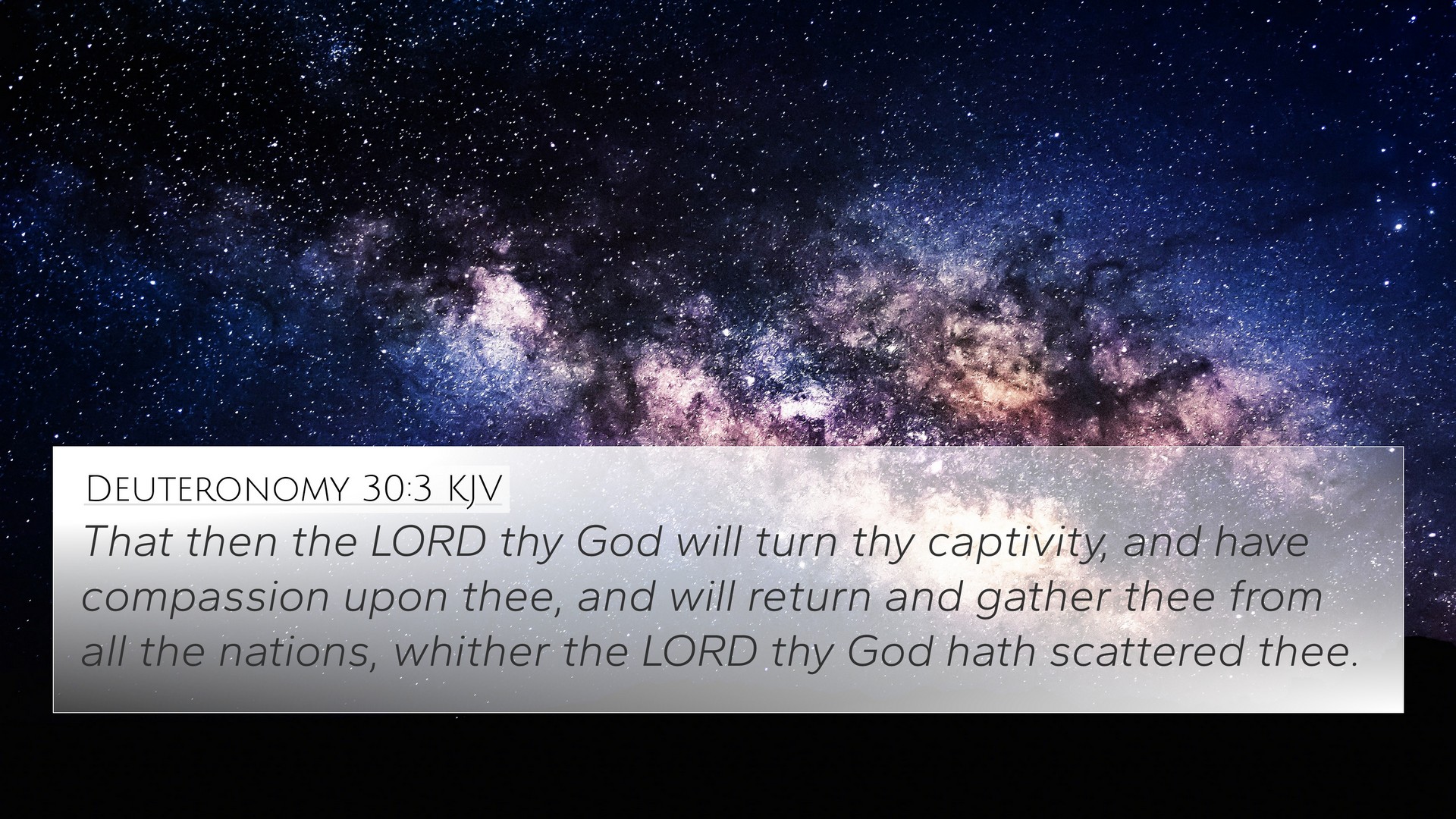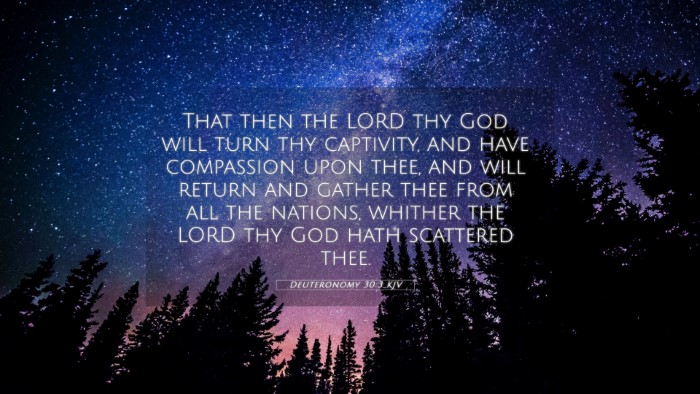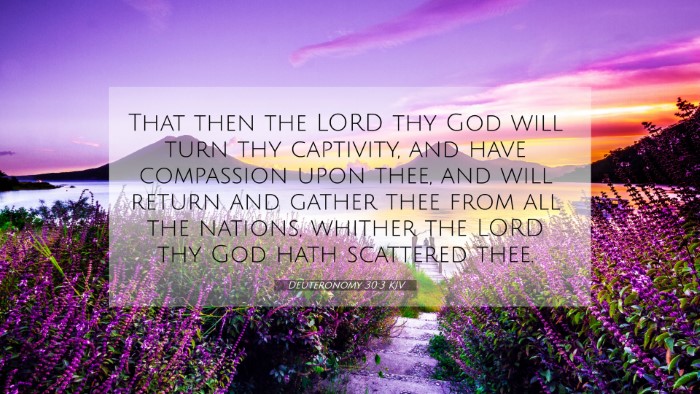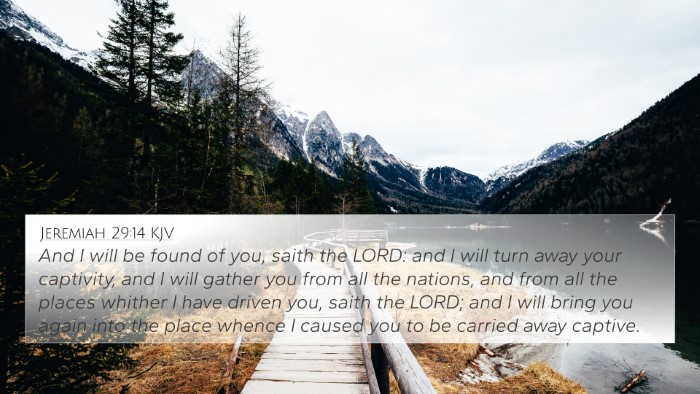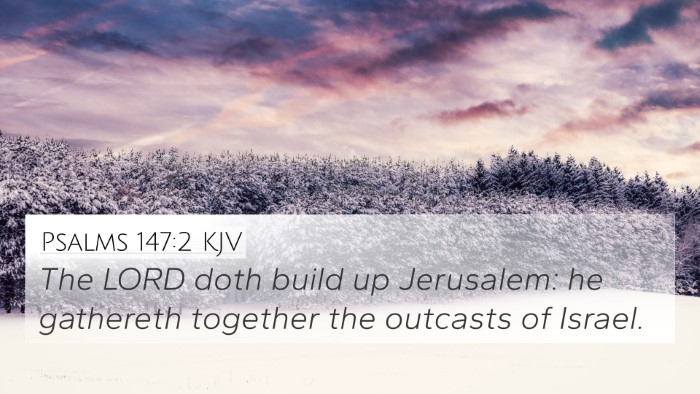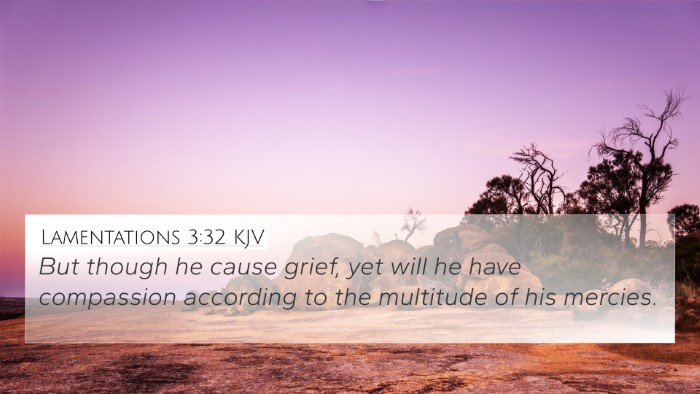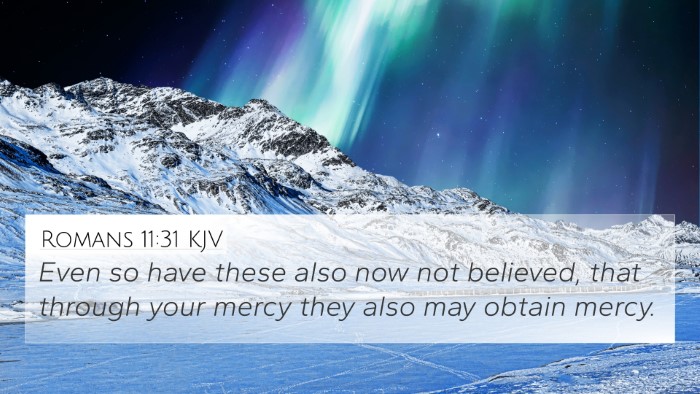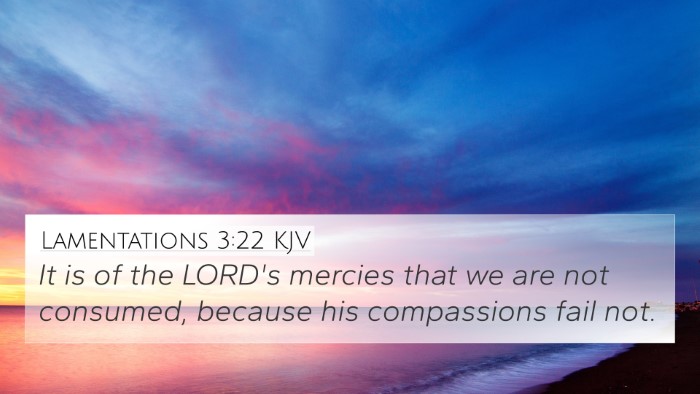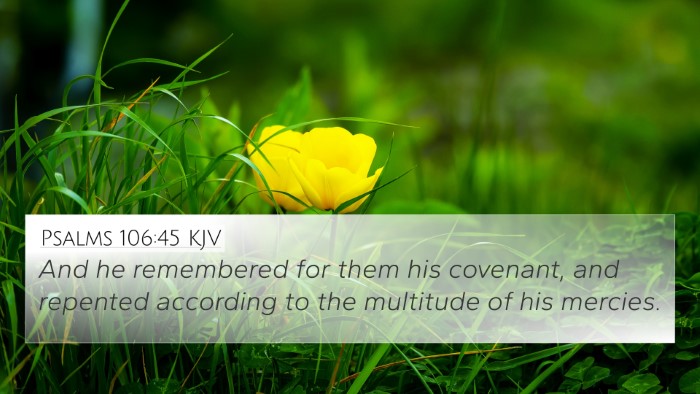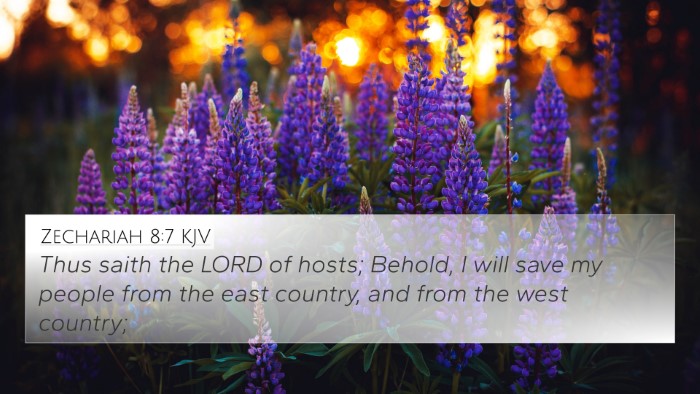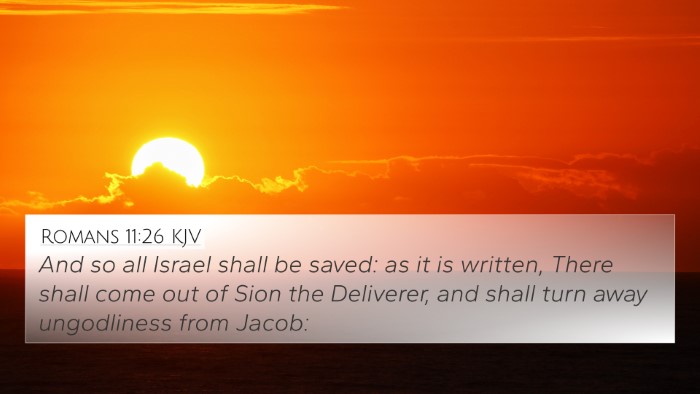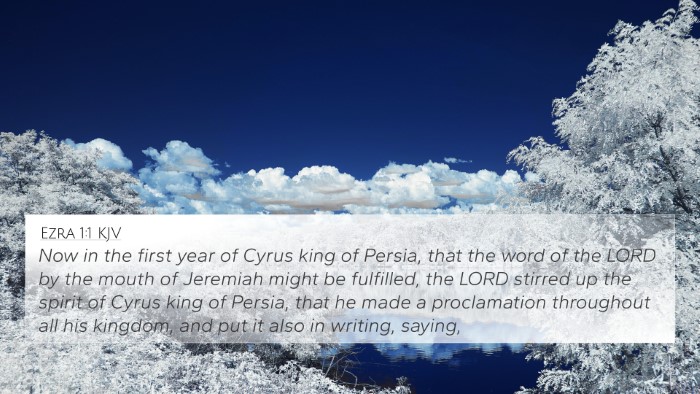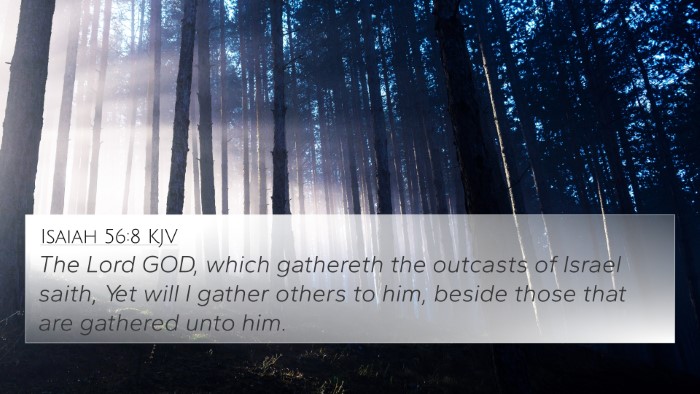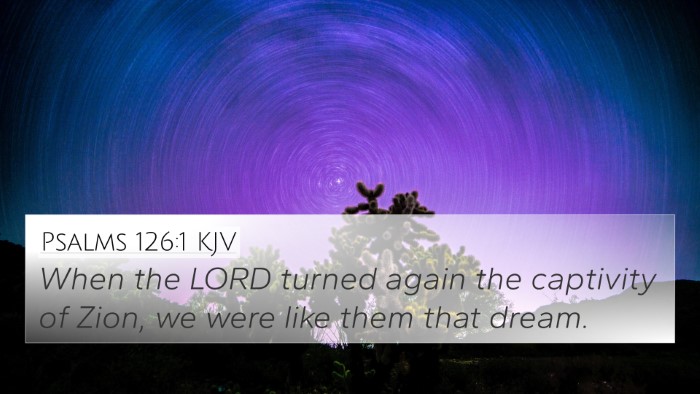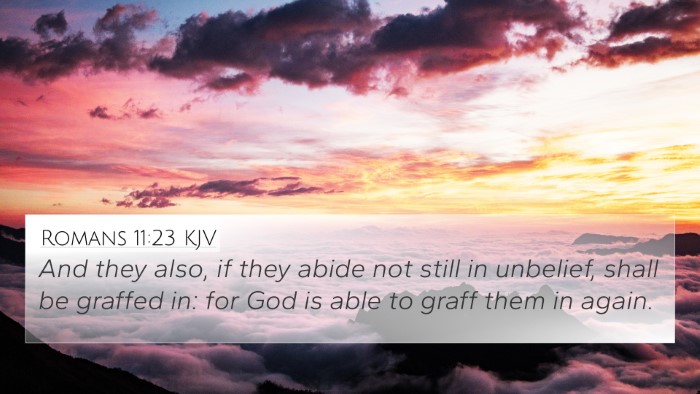Understanding Deuteronomy 30:3
Deuteronomy 30:3 states:
"That then the LORD thy God will turn thy captivity, and have compassion upon thee, and will return and gather thee from all the nations, whither the LORD thy God hath scattered thee."
This verse conveys a profound theme of restoration and divine mercy. As explained in various public domain commentaries, such as those by Matthew Henry, Albert Barnes, and Adam Clarke, this scripture reflects God's promise to His people, emphasizing His unyielding commitment to their well-being and return.
Verse Meaning and Insights
Deuteronomy 30:3 is a pivotal verse that encapsulates several core themes in the Bible, including:
- Divine Restoration: The promise of God to restore His people indicates His compassion and love.
- Judgment and Mercy: The verse illustrates a response to the consequences of sin through God's mercy.
- Covenantal Faithfulness: It reflects God's unwavering faithfulness to His covenant promises throughout history.
Commentary Insights
Matthew Henry: Henry emphasizes that God's restoration will occur despite the circumstances of exile and captivity. It reassures believers of God's constant readiness to forgive and redeem.
Albert Barnes: Barnes points out the futility of man’s plans compared to God's sovereign authority in directing the fates of nations and individuals for His purposes.
Adam Clarke: Clarke elaborates on the aspect of gathering from nations, suggesting the hearts of God’s people will be turned back to Him, revealing a transformative repentance and reunion with God.
Bible Cross-References
This verse connects with several other scriptures that enhance its meaning:
- Jeremiah 29:14: "And I will be found of you, saith the LORD: and I will turn away your captivity."
- Isaiah 54:7-8: Highlights God's mercy following temporary abandonment.
- Psalms 126:1: Reflects the joy of restoration after captivity.
- Ezekiel 34:11-12: Discusses God as the shepherd gathering His flock.
- Zephaniah 3:20: Promises restoration and gathering of God's scattered people.
- Luke 15:24: The parable of the lost son illustrates God's welcoming nature toward the repentant.
- Romans 11:26: "And so all Israel shall be saved," linking to God's covenant faithfulness.
- Matthew 23:37: Jesus laments for Jerusalem, expressing desire to gather His people.
- 2 Corinthians 5:18-19: Talks about reconciliation through Christ, which resonates with the theme of return and gathering.
- Hebrews 8:12: "For I will be merciful to their unrighteousness," emphasizing God's forgiveness.
Connections Between Bible Verses
The connections between Deuteronomy 30:3 and the referenced verses illustrate a tapestry of redemption woven throughout Scripture. They highlight:
- The theological framework of God's sovereignty in gathering His people.
- The assurance of mercy amid judgment, marking a recurring biblical theme.
- The narrative of Israel's journey from exile to restoration, inviting readers to see God's continual engagement with humanity.
Cross-Referencing Biblical Texts
Cross-referencing Biblical texts such as Deuteronomy 30:3 can enhance understanding of God's character and His promises. It encourages readers to:
- Explore the interconnectedness of the Old and New Testament.
- Identify overarching themes of mercy and redemption through scriptural analysis.
- Engage in cross-reference Bible studies to gather insights from various books.
Thematic Bible Verse Connections
In studying Deuteronomy 30:3, one might consider:
- Restoration: How restoration themes appear in both prophetic texts and New Testament teachings.
- God's Compassion: The continuity of God’s compassionate nature as evidenced throughout scripture.
- Covenants: The relationship between Old Covenant themes of exile and New Covenant themes of reconciliation.
Conclusion
Deuteronomy 30:3 is a rich Scripture that not only encapsulates the idea of restoration but also reinforces God's enduring commitment to His people. Through cross-references, one can develop a deeper understanding of the interconnectedness of biblical themes, recognizing that the Bible serves as a cohesive narrative of God’s plans for humanity. Incorporating tools for Bible cross-referencing allows for a more profound and enriched exploration of scripture, making it an invaluable part of one's spiritual journey.
